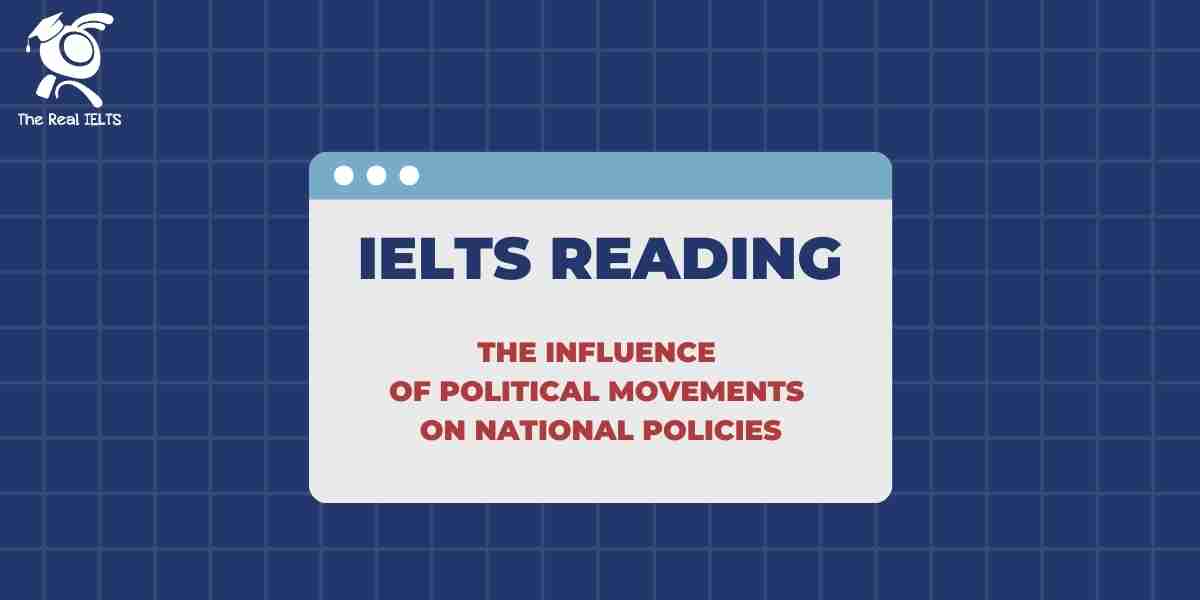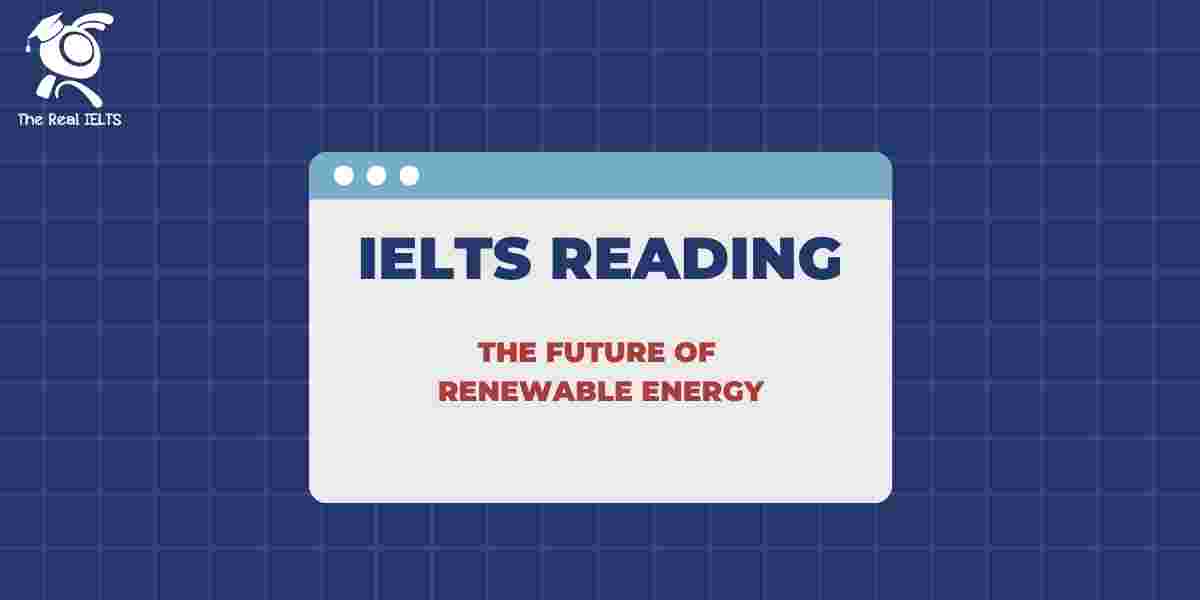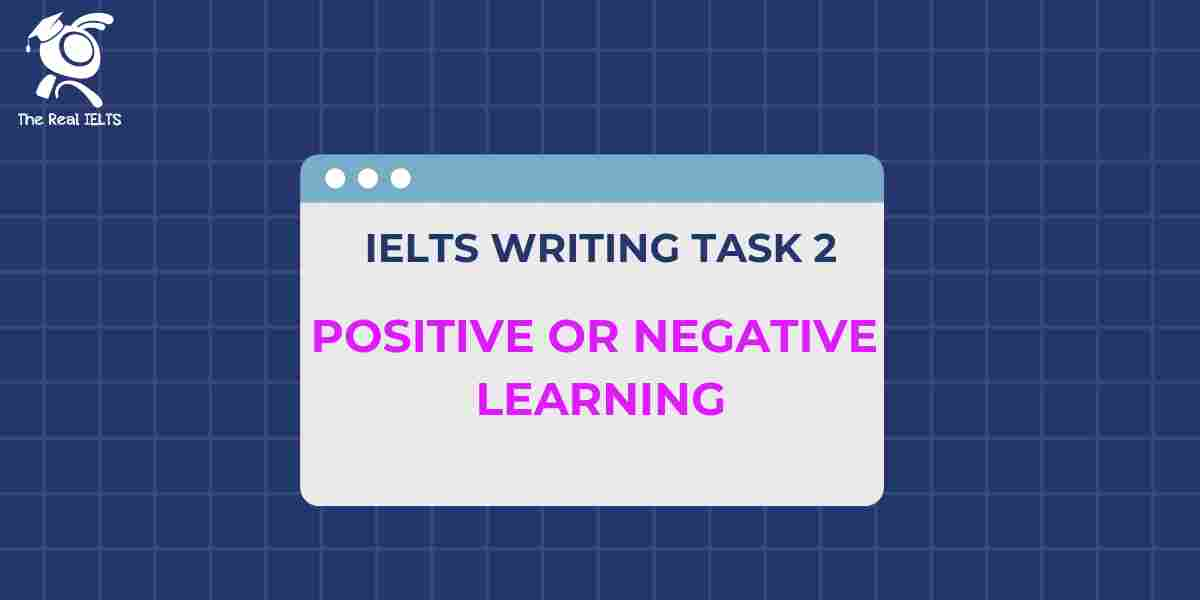Đề thi IELTS Reading có tiêu đề “The Influence of Political Movements on National Policies”
Nhớ đọc thêm các bài luyện thi IELTS nhé.
IELTS Reading:”The Influence of Political Movements on National Policies“
The Influence of Political Movements on National Policies
Political movements have played a crucial role in shaping national policies throughout history. These movements, whether grassroots or elite-driven, have often reflected the aspirations, frustrations, and ideologies of a nation’s people. Over time, their influence has not only brought about significant legislative changes but has also reshaped societal norms, economic strategies, and international relations. This essay will explore the multifaceted influence of political movements on national policies, focusing on their origins, mechanisms of impact, and long-term consequences for both democratic and authoritarian nations.
Political movements generally emerge when a substantial portion of the population feels disillusioned with the status quo. This disillusionment might be due to economic hardships, social inequality, political corruption, or a desire for expanded civil rights. In democratic societies, political movements tend to grow from a foundation of activism, with citizens exercising their right to protest, organize, and vote in favor of reforms that align with their demands.
A prime example of this is the civil rights movement in the United States, which, through persistent activism, legal challenges, and widespread protests, was able to influence major policy shifts such as the Civil Rights Act of 1964 and the Voting Rights Act of 1965. These legislative achievements were not just legal milestones; they symbolized a fundamental transformation in how American society approached race and equality, reshaping national policies on education, employment, and law enforcement.
In contrast, political movements in authoritarian regimes often face harsher obstacles but can still significantly alter national policies. Movements within such regimes may operate covertly or be brutally repressed, yet they often manage to exert influence through sheer persistence or by gaining international attention. The Solidarity movement in Poland during the 1980s, for example, played a key role in undermining communist rule in Eastern Europe.
Though initially suppressed by the government, Solidarity’s influence persisted, eventually contributing to the fall of the Iron Curtain and the subsequent democratization of Poland. In this case, the political movement had a long-term impact on national policies not only by toppling an authoritarian regime but also by laying the foundation for democratic governance, free-market reforms, and integration into Western institutions like NATO and the European Union.
One significant mechanism through which political movements influence national policies is by mobilizing public opinion. In democratic settings, the ability of movements to sway public sentiment often leads to policy changes, as elected officials are sensitive to shifts in voter preferences. For example, the environmental movement, which began in earnest in the 1960s, has since had a profound impact on policies related to climate change, pollution, and conservation.
Public pressure, often driven by environmental activism, has led governments worldwide to implement stricter regulations on industries, reduce carbon emissions, and invest in renewable energy. In many countries, the rise of green political parties further solidified environmental concerns as central to national policy debates, proving that sustained political movements can shape long-term legislative agendas.
However, not all political movements are progressive or aimed at expanding rights. Reactionary movements, driven by conservative ideologies or nationalist sentiments, can also significantly influence national policies. These movements often arise in response to rapid social or political changes that certain segments of society view as threatening. A notable example is the rise of right-wing populist movements in various parts of the world over the past few decades.
In Europe and the United States, populist movements have successfully pushed for restrictive immigration policies, skepticism toward international institutions, and the revival of protectionist economic policies. These movements have shown that the influence of political movements on national policies is not inherently positive or negative; instead, their impact depends largely on the values and goals they promote.
Political movements can also have significant ripple effects beyond national borders, especially in today’s globalized world. Transnational movements such as the women’s rights movement, labor rights movement, or even more recent movements like Black Lives Matter have sparked global conversations and influenced policies across multiple nations. International solidarity and shared goals enable movements to transcend national boundaries, compelling governments to consider broader policy changes.
For instance, the global feminist movement has led to the widespread adoption of policies promoting gender equality, such as equal pay laws, reproductive rights, and anti-discrimination measures in workplaces around the world. Similarly, the labor movement’s advocacy for worker’s rights has had a profound impact on labor laws globally, leading to policies that protect workers from exploitation, ensure fair wages, and provide social security benefits.
In some cases, political movements also push national policies to be more inclusive of minority groups. The LGBTQ+ rights movement is a prime example of how sustained activism can lead to significant policy changes. Once marginalized and often persecuted, the LGBTQ+ community has, through decades of activism, succeeded in influencing policies related to marriage equality, anti-discrimination laws, and health care rights in many countries. The success of this movement highlights how national policies can evolve in response to the demands of previously disenfranchised communities, creating a more inclusive legal and social framework.
Despite their potential for positive change, political movements can also face challenges in achieving long-term policy impacts. In some cases, movements may experience initial success in influencing policies, only to see those gains rolled back by subsequent administrations or shifts in public sentiment. This can be particularly true for movements that rely heavily on charismatic leadership or temporary waves of enthusiasm. The Arab Spring, for example, initially sparked hopes for democratic reforms across the Middle East and North Africa.
However, the long-term policy outcomes have been mixed, with some countries reverting to authoritarian rule, while others continue to grapple with instability and incomplete democratic transitions. This demonstrates that while political movements can initiate change, the sustainability of that change depends on broader institutional reforms and the continued engagement of civil society.
In conclusion, political movements have a profound influence on national policies, whether they are advocating for social justice, environmental sustainability, economic reforms, or nationalistic ideals. These movements can reshape the legislative landscape, challenge existing power structures, and redefine national priorities. While the outcomes of political movements vary depending on the context and the nature of the movement, their ability to mobilize public opinion, pressure policymakers, and push for legislative change remains a powerful force in shaping the future of nations. In both democratic and authoritarian regimes, political movements will continue to play a vital role in determining the course of national policies, reflecting the ongoing dynamic between the governed and those who govern.
Đề bài thi IELTS Reading
Multiple Choice Questions (MCQs):
- What is one of the main reasons political movements emerge? A. Economic prosperity
B. Social satisfaction
C. Disillusionment with the status quo
D. Stable governance - Which movement is cited as an example of influencing policies in the United States? A. Environmental movement
B. Civil rights movement
C. Labor movement
D. LGBTQ+ movement - How did the Solidarity movement influence national policies in Poland? A. By introducing market reforms
B. By gaining international support
C. By toppling the authoritarian regime
D. By establishing a monarchy - What is the primary mechanism through which political movements influence national policies in democratic societies? A. Gaining international allies
B. Mobilizing public opinion
C. Influencing military forces
D. Holding secret meetings - Which of the following is an example of a reactionary political movement? A. Civil rights movement
B. LGBTQ+ movement
C. Right-wing populist movement
D. Environmental movement - What has been the impact of the global feminist movement on national policies? A. Reduced gender equality
B. Widespread adoption of gender equality policies
C. Increased restrictions on women’s rights
D. No influence on policy - Which of the following best describes the main challenge faced by political movements in authoritarian regimes? A. Lack of popular support
B. Immediate policy success
C. Government repression
D. International attention - What does the author suggest is a major factor in sustaining policy changes initiated by political movements? A. Charismatic leadership
B. Military intervention
C. Broader institutional reforms
D. Decline of civil society - The Arab Spring is an example of: A. A successful movement leading to complete democracy
B. A movement that resulted in mixed outcomes
C. A movement focused on environmental policies
D. A political movement in Eastern Europe - How do political movements affect international relations? A. By isolating nations
B. By promoting war
C. By creating global conversations and policy changes
D. By reducing economic collaborations
True/False/Not Given:
- Political movements always originate from grassroots efforts.
True / False / Not Given - The Civil Rights Act of 1964 was the only legislative achievement of the civil rights movement.
True / False / Not Given - The LGBTQ+ movement has led to policy changes only in the United States.
True / False / Not Given - Right-wing populist movements are responsible for promoting international cooperation.
True / False / Not Given - The Arab Spring led to democratic reforms in every country involved.
True / False / Not Given - The Solidarity movement gained power without international support.
True / False / Not Given
Yes/No/Not Given (Author’s Opinion):
- Does the author believe political movements are more effective in democratic societies?
Yes / No / Not Given - Does the author think political movements have a negative impact on national policies?
Yes / No / Not Given - Does the author suggest that reactionary movements are inherently harmful?
Yes / No / Not Given - Does the author believe transnational movements have a limited impact on national policies?
Yes / No / Not Given
Matching Information:
- Match the following policies with the political movements mentioned: A. Civil Rights Act – ______
B. Environmental policies – ______
C. LGBTQ+ rights – ______
D. Labor laws – ______
E. Immigration restrictions – ______
Options:
- LGBTQ+ movement
- Right-wing populist movement
- Civil rights movement
- Environmental movement
- Labor movement
Matching Headings:
- Match the correct heading to each paragraph: A. Grassroots Movements and Their Origins
B. Challenges Faced by Movements in Authoritarian Regimes
C. The Role of Public Opinion in Policy Changes
D. The Impact of International Solidarity
Matching Features:
- Match each political movement with its associated country: A. Civil rights movement – ______
B. Solidarity movement – ______
C. Arab Spring – ______
D. Environmental movement – ______
Options:
- Poland
- United States
- Middle East
- Global
Matching Sentence Endings:
- Political movements in authoritarian regimes often…
A. are successful in gaining public support.
B. operate covertly or face repression.
C. immediately change government structures.
D. promote environmental sustainability. - Reactionary political movements aim to…
A. reduce international cooperation.
B. resist social and political changes.
C. increase civil rights for minorities.
D. support transnational solidarity.
Sentence Completion:
- Political movements in democratic societies often rely on ______ to influence national policies.
- The global feminist movement has resulted in widespread adoption of ______ in many countries.
- The success of the LGBTQ+ movement demonstrates how national policies can evolve in response to ______.
- Right-wing populist movements have successfully promoted policies such as ______.
Summary Completion:
30-34. Complete the following summary using words from the passage:
Political movements have historically played a significant role in shaping ______. In democratic societies, movements often rely on ______ to influence policy changes, as elected officials respond to shifts in ______. Examples like the ______ in the United States demonstrate how sustained activism can lead to legislative changes. On the other hand, in authoritarian regimes, movements often face ______ but can still exert influence.
Diagram Label Completion:
35-38. Label the following diagram of political movements’ influence on national policies:
A. Democratic societies
B. Authoritarian regimes
C. Reactionary movements
D. Transnational movements
Short Answer Questions:
- What was one key policy shift brought about by the civil rights movement in the United States?
- How do reactionary political movements differ from progressive ones in terms of their goals?
Đáp án bài thi IELTS Reading
Multiple Choice Questions (MCQs):
- C. Disillusionment with the status quo
- B. Civil rights movement
- C. By toppling the authoritarian regime
- B. Mobilizing public opinion
- C. Right-wing populist movement
- B. Widespread adoption of gender equality policies
- C. Government repression
- C. Broader institutional reforms
- B. A movement that resulted in mixed outcomes
- C. By creating global conversations and policy changes
True/False/Not Given:
- False
- False
- False
- False
- False
- Not Given
Yes/No/Not Given (Author’s Opinion):
- Yes
- No
- Not Given
- No
Matching Information:
A. Civil Rights Act – 3
B. Environmental policies – 4
C. LGBTQ+ rights – 1
D. Labor laws – 5
E. Immigration restrictions – 2
Matching Headings:
A. Grassroots Movements and Their Origins
B. Challenges Faced by Movements in Authoritarian Regimes
C. The Role of Public Opinion in Policy Changes
D. The Impact of International Solidarity
Matching Features:
A. Civil rights movement – 2
B. Solidarity movement – 1
C. Arab Spring – 3
D. Environmental movement – 4
Matching Sentence Endings:
- B. operate covertly or face repression
- B. resist social and political changes
Sentence Completion:
- public opinion
- gender equality policies
- social movements
- immigration restrictions
Summary Completion:
30-34.
Political movements have historically played a significant role in shaping national policies. In democratic societies, movements often rely on public opinion to influence policy changes, as elected officials respond to shifts in public sentiment. Examples like the civil rights movement in the United States demonstrate how sustained activism can lead to legislative changes. On the other hand, in authoritarian regimes, movements often face government repression but can still exert influence.
Diagram Label Completion:
- Democratic societies
- Authoritarian regimes
- Reactionary movements
- Transnational movements
Short Answer Questions:
- The Civil Rights Act of 1964
- Reactionary movements aim to resist social and political changes, while progressive ones seek reform and equality.
Luyện tập bài khác ở bài viết:”100 bài luyện IELTS Reading 2024 – 2025“















